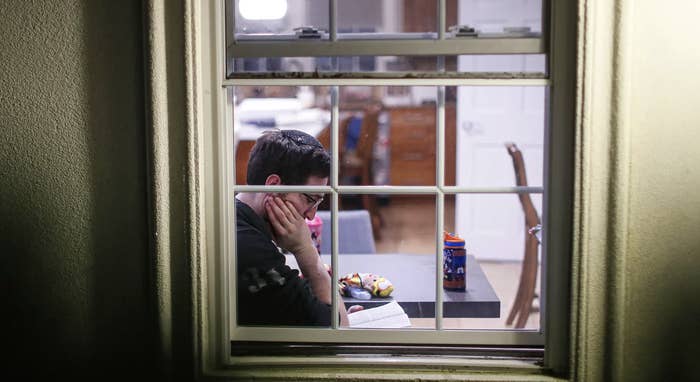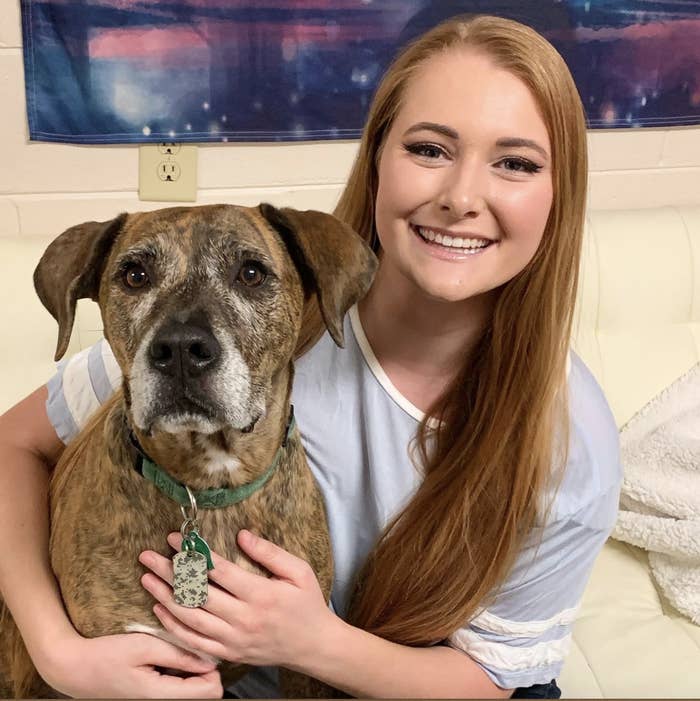
A few short months ago, phrases like “self-isolation” and “social distancing” rarely factored into our everyday vocabulary. Now, they are becoming key definitions to describe the way many people are beginning to live their lives.
The coronavirus pandemic is a world event unlike any experienced in a generation, with countries all over the world — including the UK — taking unprecedented measures to stop its spread.
But as the names suggest, the practices of self-isolation and social distancing can begin to quickly take a toll on people’s mental health and wellbeing, from not being able to visit family members who may be sick to being unable to do something as normal as walk to the supermarket. It’s therefore crucial that amid it all, we strive to maintain a life of normalcy — even when the current situation is anything but.
Dozens of people who are practicing self-isolation and social distancing have shared their tips and tricks for looking after their mental wellbeing with BuzzFeed News, with the hope that some of what they say will help others.
We’ll be consistently updating this list with helpful advice from contributors, as well as providing contact information for charities and organisations you can reach out to if you’re struggling.
"Put a few things in your schedule to normalise your day! Plan when you want to be productive, plan when you want to work on art, maybe even schedule a FaceTime with a friend to get a little socialisation.” —Chezzy, via Twitter.

“I’m not an extraordinarily active person but I’ve found the most difficult thing about self isolation to be only able to move from my bedroom to my living room. One thing that has really helped is at-home workout videos on YouTube. Working out at home has made me not worry so much about my lack of movement and less self conscious about the inevitable snacking from home constantly.” —anon via Twitter
“Changing up the area I’m working in, download Duolingo to practice language skills, which strangely makes me feel less alone to hear myself talking out loud, plenty of dance music breaks to get myself moving and feeling my emotions during moments of stress, and looking for content on the internet that has nothing to do with COVID-19." —anon, Twitter
“Nowadays, I take two showers a day to feel fresh. Also if you can try dressing well and maybe look good for yourself at home! And try connecting with people you’ve maybe stopped talking to. And as usual, watch a light-hearted show.” —Noopur, via Twitter

“I get up and have a coffee in bed and listen to the Meditation Minis podcast. The host Chel Hamilton just released a new episode with people’s mental health during this time in mind and it was all about love. I’ve also been doing some deep breathing exercises by Wim Hof and the occasional quick cold shower to make me feel fresh. I wake up my body with a yoga session from YouTube and then do some body brushing and about five minutes of journaling to remind myself I’m lucky to stay home and keep myself safe.” —Ellie, via Twitter
“I sketch and paint to keep myself sane.” —Sasala, via Twitter
“Coconut rings, vanilla soy milk, chai masala, I’ve read two books (I forgot how much I love reading), Netflix and I’ve cleaned my wardrobe." —Chantelle, via WhatsApp.

“My mental health is at ease by building a backyard POND. Oh the ambience!!” —Manda, via Twitter
“I’ve been spending a lot of time cooking. Cooking really helps my mental health as it takes up time and feels productive since I’m nourishing my body I also tend to eat healthier as well.” —Katy, via Twitter
“I make sure I talk to people on the phone to keep up human interaction. I take breaks like a normal workday, and my dogs are a great distraction. Repetition and a sense of normal schedule is key for me. I don’t clean or do housework when I work from home UNTIL I am done working.” —LaNell, via Twitter

“Xbox and jollof rice!” —Rants, via Twitter
“I had a bombass dance session in my room all by myself...I played the cha cha slide, cupid shuffle, soulja boy and more cool dance songs.” —Natalie, via Twitter
“Manage expectations of yourself and of others. The patterns of work will have to change. Replies will take longer but don’t become a workaholic.” —Colse, via Twitter

“Start a gratitude journal, and you now have the time to make the most of this! It could be ‘I am grateful for my lie-in because I don’t have to commute to work — one bird, two stones.” —Karen, via email.
“Don’t be afraid to have a lunch break and stop work at a reasonable time. Having a good working routine will help balance out your work and home life when you no longer travel to your place of work.” —MyKay, via email.
“Maybe it’s super obvious, but shower and get dressed after you get up. Maybe a bit of make-up, or perfume and cute earrings. Then a little breakfast. And text/call like three people to check in. Then work and keep a journal about all the work you actually got done. If you have a balcony/terrace, step outside for a little after lunch. Or open the window and look outside. Share how you’re feeling with others. Try not to nap too much. Do a chore or two a day. Stretch and look out for 10 min workouts to try. Treat yourself to a bath after or sweets or whatever. Go to bed at a reasonable hour, ideally the same every night.” —Saba, via Instagram

“I have a lot of plants in my apartment and caring for them has definitely helped my sanity. The days are getting longer and they’re sprouting new leaves. I’ve started taking pictures of them every few days so I can see how much they’ve grown. It’s calming, and also a way to mark time.” —Meryl, via Twitter
“My therapist told me to write a routine immediately and stick to it. Try not to read the news to freak myself out and keep more active than usual to avoid an idle mind.” —Ada, via Instagram
“Limit your consumption of news and social media. With a large amount of reporting from various sources, to reduce anxiety is important to limit how much time we spend on news and social media platforms, and spend more time consuming positive media such as podcasts, inspirational videos and informative documentaries.” —Lee, via email.
“Learn new recipes! There are so many recipes online that you can follow and now that you have more time on your hands it’s so handy to be able to branch out and experiment in the kitchen a bit more.” —Joey, via Twitter

Useful Organisations
MIND
MIND has an extensive list of advice, tips, and tricks on how to look after your mental health on their website, as well as where to get help and treatment if you need it. You can access that here.
YoungMinds
YoungMinds has lots of advice about what to do if you’re feeling anxious about the coronavirus, plus advice for parents and carers on how to speak to children about it. You can access that here.
They also provide 24/7 crisis support for those who need urgent help. You can access it by texting "YM" to 85258.
Samaritans
Samaritans offer 24-hour confidential listening for anyone who needs it — just call 116 123.

